Meet 10 women confronting anti-Black racism in higher education
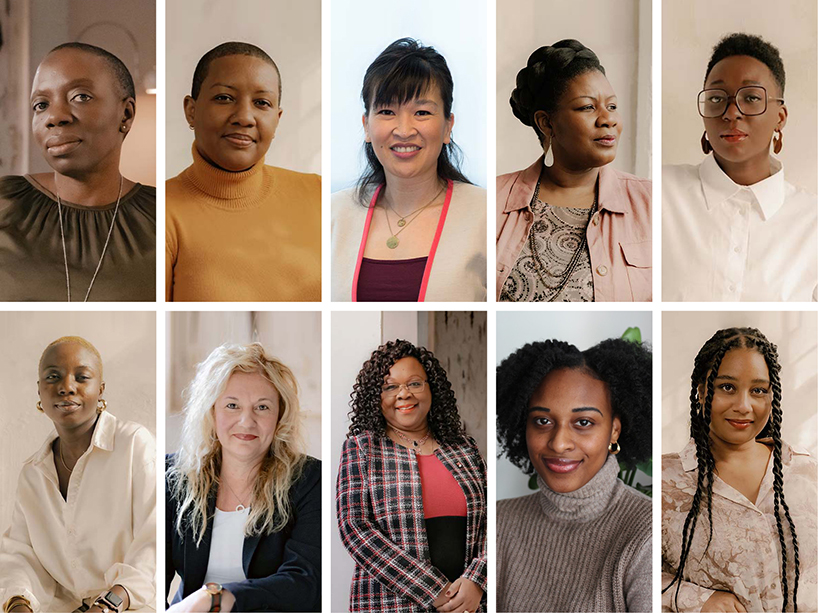
In their brand new roles, these community members are helping Black students, faculty and staff flourish at the university. Top row, from left: Annette Bailey, Grace-Camille Munroe, Jannet Nguyen, Yonnette (Marcia) Glasgow, Mary Ola. Bottom row, from left: Mofi Badmos, Roberta Iannacito-Provenzano, Shurla Charles-Forbes, Tashana McDonald, Tiyahna Ridley-Padmore.
Challenging systemic racism is a collective responsibility of the university community. But there are many people who have taken on new roles to support the ongoing work of confronting anti-Black racism on campus.
These roles were created to help advance the 14 recommendations to create an inclusive campus environment, outlined in the (PDF file) Anti-Black Racism Campus Climate Review Report. Published in July 2020 by the Office of the Vice-President, Equity and Community Inclusion (OVPECI), the report highlighted lived experiences of Black students, faculty and staff to better understand the realities they experience with racism at the university.
Since then, the Presidential Implementation Committee to Confront Anti-Black Racism (PICCABR) has been working with partners across the university to bring about meaningful change that Black community members hope to see.
Meet 10 women who are taking concrete action to confront anti-Black racism on a daily basis and build a more inclusive future.
Annette Bailey
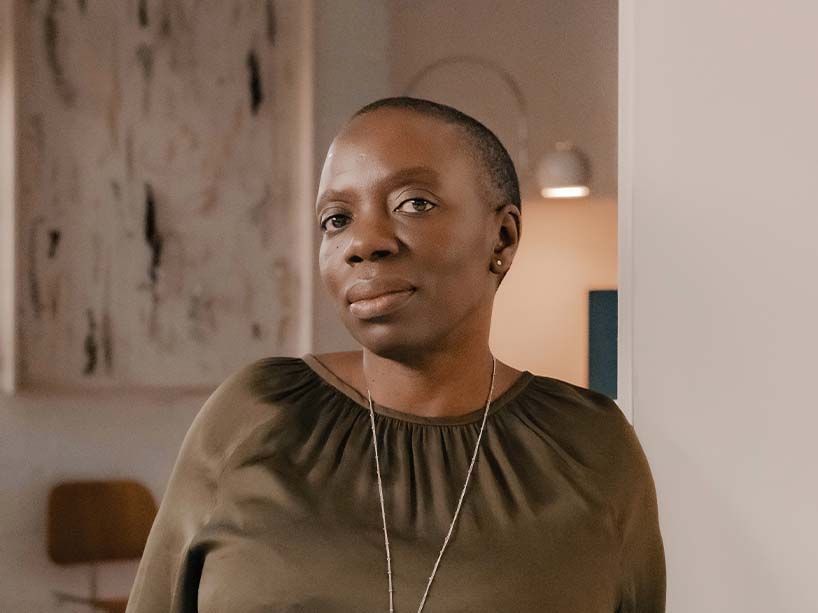
Annette Bailey is the co-chair of the Faculty Working Group and a professor in the Daphne Cockwell School of Nursing. Photo by Alyssa K. Faoro.
Annette Bailey is helping the university make changes to faculty recruitment, faculty support, and developing teaching methods and curriculum focusing on anti-Black racism resistance. She aims to help Black faculty flourish by strengthening working relationships, building opportunities for creativity in research programs that are meaningful, and shifting the attitudes of the community about the value of Black faculty.
As co-chair of the Faculty Working Group, Bailey’s priorities include building support for a Black Studies Institute at the university, more post-doctoral fellowships for Black scholars, a career mentorship program for Black graduate students and creating specific job ads for recruiting Black scholars.
Bailey says that these initiatives require champions from within the university. With support from key individuals and departments such as the provost and Office of the Vice-President, Research and Innovation, these initiatives will enhance student experience and Black scholarship development.
“As a Black woman and mother, I am deeply committed to building spaces where Black excellence is uninhibited and the contributions of Black people are credited. As a public health practitioner and nurse, I recognize anti-Black racism as a deterrent to collective growth, responsible for sucking life and vigour from the true potential of institutions,” she says.
Grace-Camille Munroe
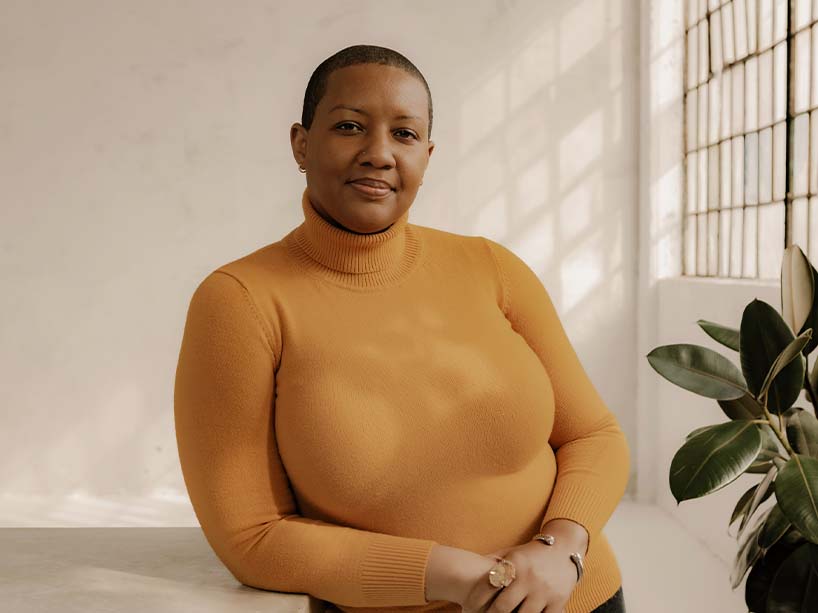
Grace-Camille Munroe is the project manager for the Presidential Implementation Committee. Photo by Alyssa K. Faoro.
Grace-Camille Munroe was looking for an opportunity to serve her community when she was offered her new role at the university. In her role, she shares her knowledge and skills with the co-chairs of the Presidential Implementation Committee. She collaborates with the student, faculty and staff working groups to implement the report’s recommendations, and hopes to make sustainable change for Black community members.
“I am committed to fostering conditions that promote Black flourishing, prosperity and resilience, and result in the collective liberation of my community. This role is an opportunity to give back to my community and work intentionally to dismantle and uproot systemic forms of anti-Black racism at the university,” she says.
As a Black woman of Jamaican heritage and a research-based practitioner who holds a PhD in adult education and community development, Munroe says her “theorising and experience in this work indicates that anti-Black racism is antithetical to what it means to be human. It deprives the Black soul and spirit of what it needs to flourish.”
She describes the change she is working towards with the South African word “sawubona,” which translates to, “I see you; I value you; you are important to me.” She believes that the university community will truly flourish only when the principles and practices consistent with "sawubona" are achieved.
Jannet Nguyen
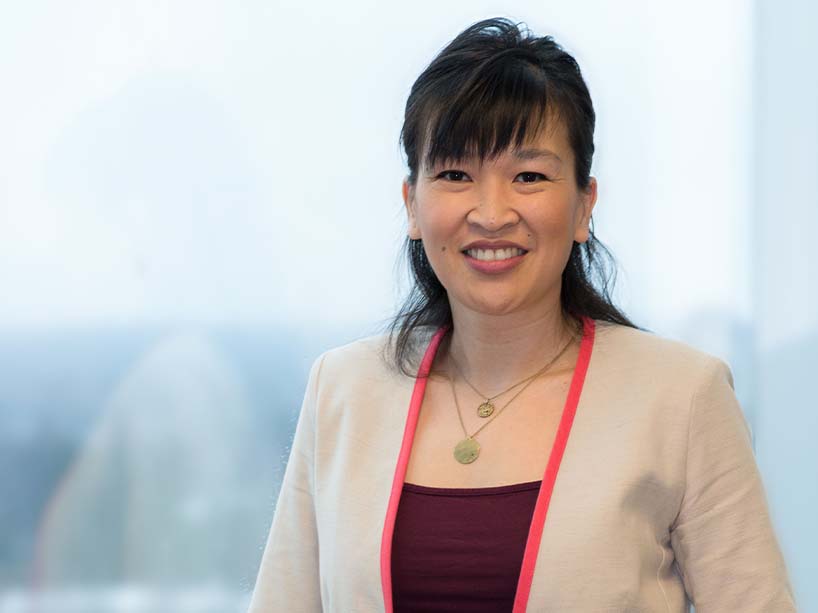
Jannet Nguyen is the director of talent acquisition in human resources.
Addressing the report’s recommendation to build trust among Black staff members, Jannet Nguyen is developing transparent recruitment policies, working with the OVPECI to implement Diversity Self-ID at the point of application and designing resources for leaders on inclusive hiring practices.
Nguyen also supports the university’s initiative to develop a Talent Acquisition Centre of Expertise. This will help advance the university’s vision of becoming a more inclusive employer by developing recruitment strategies that address anti-Black bias in the interview process, and intentionally recruiting more Black talent.
“Arriving in Canada as a refugee with my nine siblings in the early 70s, I understand the challenges of equity and inclusion, and have a deep desire to make a positive social impact by creating employment opportunities for disadvantaged Canadians,” she says. For the last 25 years, she has helped major corporations implement anti-racism action plans and reduce systemic barriers in hiring for the Black community.
Yonnette (Marcia) Glasgow
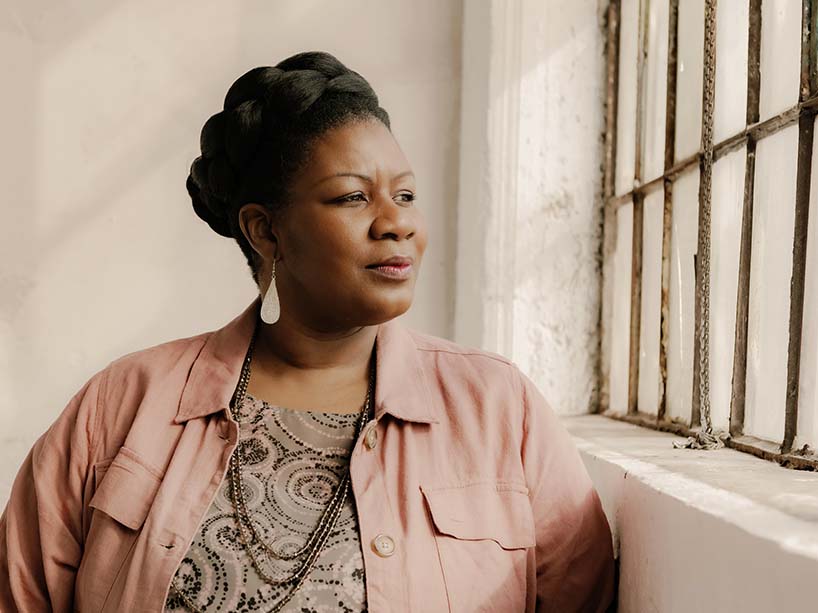
Marcia Glasgow is the anti-Black racism education and awareness facilitator in the OVPECI. Photo by Alyssa K. Faoro.
Marcia Glasgow’s career has been rooted in social justice and advocacy work to address anti-Black racism. Her educational and professional background in public health has deepened her understanding of how anti-Black racism contributes to the health and social disparities of Black/Caribbean/African communities. She considers her role an opportunity to facilitate discussions on anti-Black racism with the university community, share knowledge, best practices and strategies to dismantle anti-Black racism.
“As a self-identified Black woman who was born in Canada with strong Caribbean roots, I can reflect on incidents during my life that were blatant acts of racism, microaggressions and tokenism. I bring not only those collective experiences but introspection, wisdom, vulnerability and optimism to conversations with the university community,” Glasgow says.
She hopes to accomplish three things in her role: raise awareness so people recognize what a microaggression is and how they can implement change within their respective teams, provide relevant evidence to inform long-term change at the university, and connect Black students, staff and faculty to resources and opportunities that build a sense of belonging and inclusion.
Glasgow is supporting a course-auditing project that aims to create a catalogue of existing courses on equity, diversity and inclusion with Afrocentric, Black-Canadian and Afro-Caribbean-centred content. This database will also include courses taught by Black instructors and will be accessible to everyone on campus. The project will provide benchmarks to measure progress, help increase Black faculty hires and create more courses with Afrocentric, Black-Canadian and Afro-Caribbean-centred content.
Mary Ola
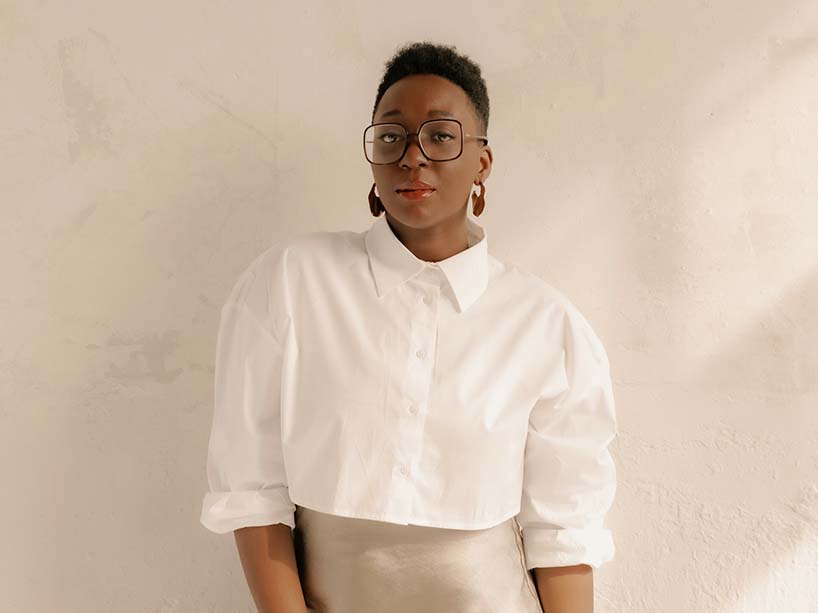
Mary Ola is the project coordinator for the Presidential Implementation Committee. Photo by Alyssa K. Faoro.
Mary Ola is responsible for making sure that all recommendations in the report are implemented in an efficient way. She provides budget advice and administrative support while coordinating various projects to help Black community members achieve professional, academic and personal growth.
A Nigerian-Canadian who immigrated to Canada at the age of 10, Ola’s approach to her role aligns with her approach to life. “I aim to shift my corner of the world, honour my lived experience, and work on my lifelong mission of dismantling anti-Black racism,” she says. “I hope to improve the material conditions of Black people in a way that moves beyond performative tasks and empty promises.”
Mofiyinfoluwa Badmos
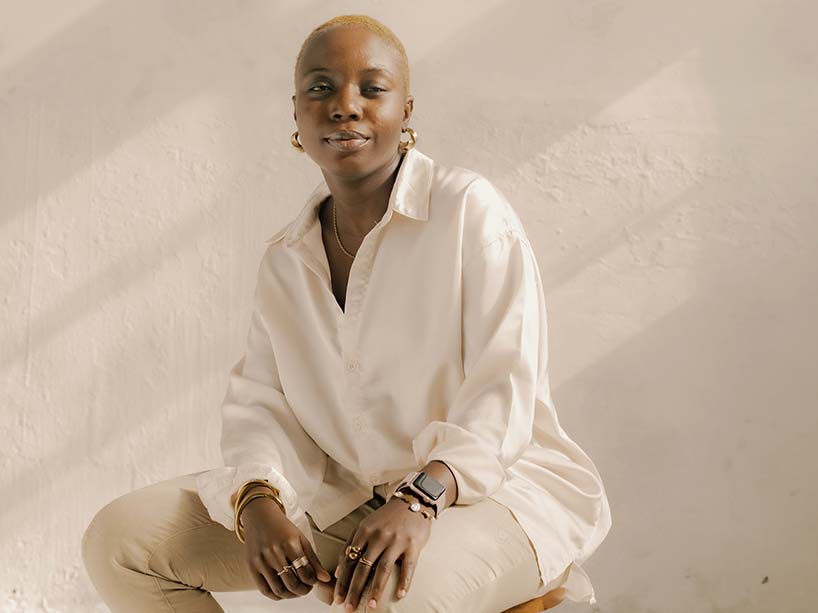
Mofi Badmos is the Black student support facilitator in the Tri-Mentoring Program, supporting the work of the Presidential Implementation Committee. Photo by Alyssa K. Faoro.
A Ryerson alumna, Mofi Badmos is dedicated to supporting Black students and acknowledges the importance of providing support for Black folks, by Black folks.
“As an immigrant from Nigeria who came to Canada as an international student, I was confronted with the realities and perceptions of Blackness within the Canadian context in a way that required me to acknowledge Blackness as something that felt highly visible and also invisible,” she says.
Badmos is working on creating programs and events that will primarily run out of the Black student lounge – a space for Black students on campus. “I hope to continue fostering spaces for Black community members to feel heard, seen and valued, while helping Black students find pockets of community, fun and support during their time at the university,” she says.
Roberta Iannacito-Provenzano
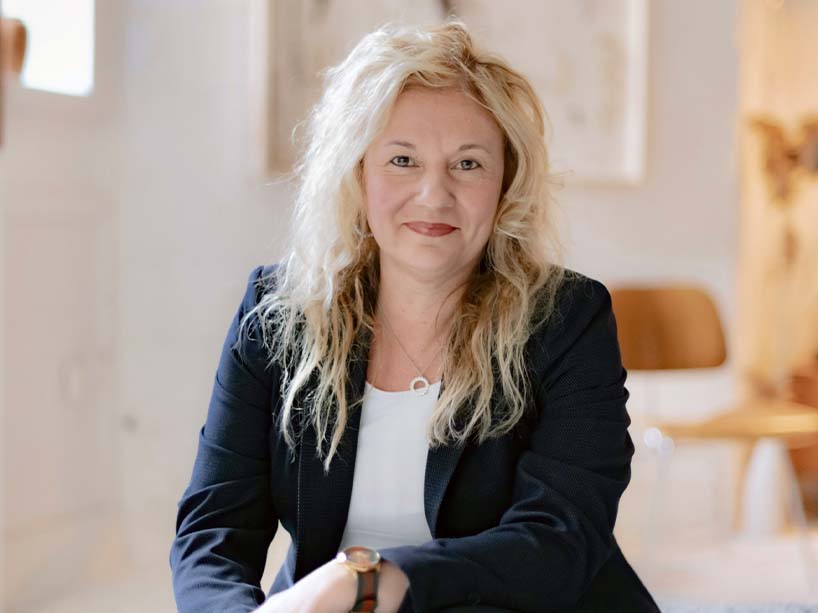
Roberta Iannacito-Provenzano is the co-chair of the Faculty Working Group, Vice-Provost, Faculty Affairs and professor in the Department of Languages, Literatures and Cultures. Photo by Alyssa K. Faoro.
Through her many roles, Roberta Iannacito-Provenzano helps ensure that faculty recruitment aligns with the university’s goal to attract and retain excellent and diverse academic staff. Along with Bailey, she helps execute the Faculty Working Group’s action plan by drafting job ad language that targets Black scholars and creating post-doc fellowships for Black candidates.
They are also tackling other initiatives such as the Black Studies Institute to expand the number of Black faculty members teaching, researching and participating in decision-making at the university.
“For me, Black flourishing means creating an environment where students, faculty and staff feel welcome, where their voices are heard and they feel a sense of belonging. This will further help us shape the university through their teaching, SRC activities and involvement in governance,” she says.
Shurla Charles-Forbes
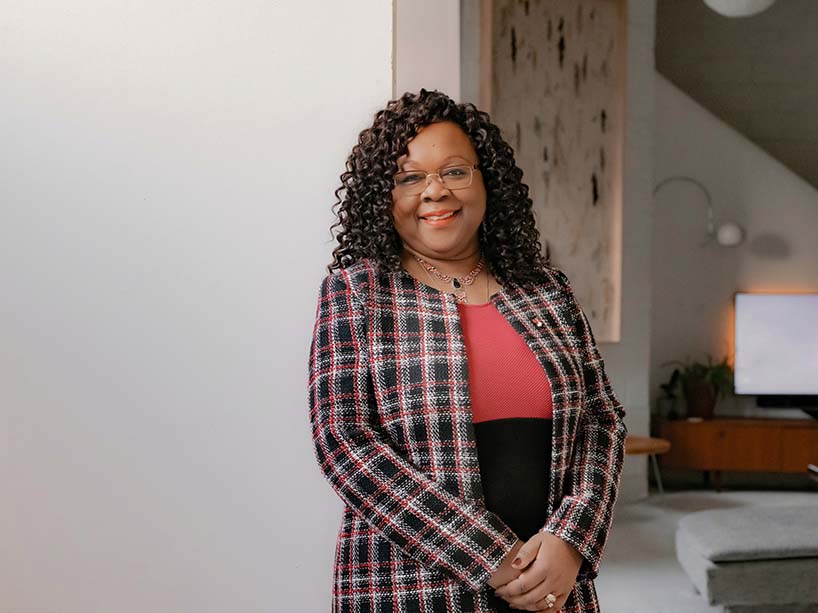
Shurla Charles-Forbes is the manager of talent development and strategic lead, EDI/ABR in the Talent Management Centre of Expertise in human resources. Photo by Alyssa K. Faoro.
Originally from Trinidad and Tobago, Shurla Charles-Forbes is a PhD candidate focusing on understanding the experiences of Black employees in a university setting. Through her role, she is helping build trust among Black staff and creating programs for their advancement within the university.
“I want to be the voice of those who are not heard and bring an anti-Black racism lens to all policies and practices so that they are equitable and fair,” Charles-Forbes says. “My goal is to address anti-Black racism at the systemic level by building key EDI competencies that are a foundation for practices across the university and incorporated into the employee life cycle.”
Charles-Forbes brings her personal experiences as a Black immigrant woman to the work of disrupting systems of inequality. She believes that each community member needs to be involved in effectively addressing the issues highlighted in the report, not just those who identify as Black.
Tashana McDonald
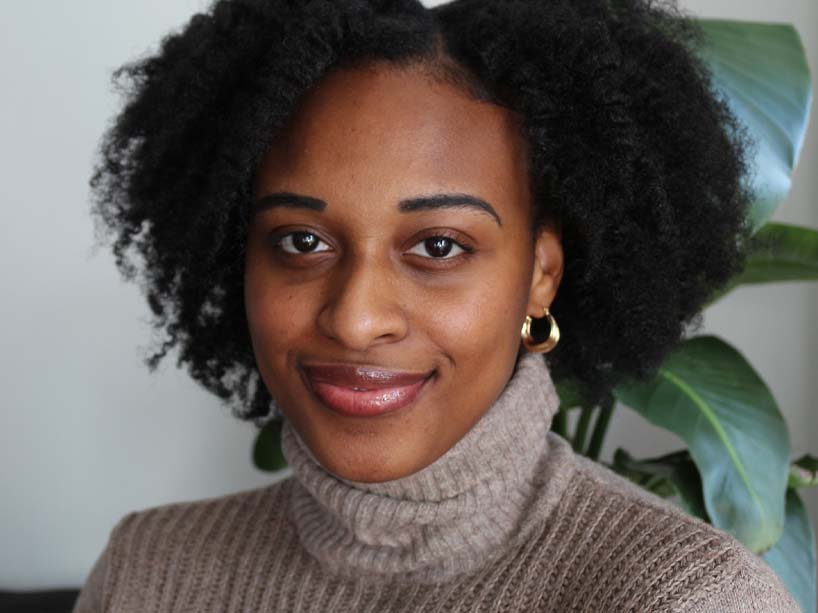
Tashana McDonald is a mentoring facilitator for the university’s Tri-Mentoring Program and staff liaison for the ABR Student Advisory Committee (21/22).
As she transitioned from a student to staff member and engaged with Black students on a daily basis, Tashana McDonald wanted to actively contribute towards long-term change. She now works to amplify Black voices, create safe spaces and programs for Black-identified students to build community.
“My goal is to make sure that Black students find community and feel a sense of belonging on campus. I also want them to see their community represented before they even make the transition to post-secondary education, as well as beyond it,” she says. "As a Black woman and former student-athlete, having to search for representation often left me feeling lost and exhausted. I understand how important it is for Black students to enter an environment where they see themselves represented in every aspect of the institution. It can positively impact their experience and well-being."
Tiyahna Ridley-Padmore
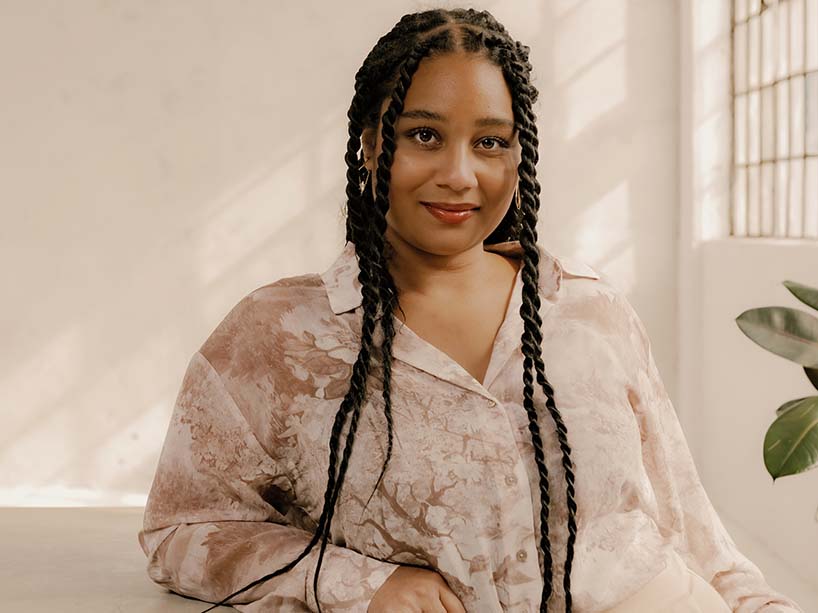
Tiyahna Ridley-Padmore is a communications specialist, anti-Black racism in the OVPECI. Photo by Alyssa K. Faoro.
Tiyahna Ridley-Padmore is the author of Trailblazers, a bestselling children’s book about Canada’s Black history, and the founder of Counterstory (external link) , an organization that works with artists, schools and businesses to promote more equitable narratives in storytelling and knowledge sharing. “I was drawn to this role because of the university’s willingness to be transparent about its role in perpetuating racist outcomes and then backing it by tangible institutional investment towards meaningful change,” she says.
Ridley-Padmore works with Black students, faculty and staff to develop communications that inform and engage university stakeholders on the status of the report recommendations. “I intend to use my role to help co-create a new narrative at the university that is unapologetically anti-racist, inclusive and committed to centring Black excellence and belonging,” she says.